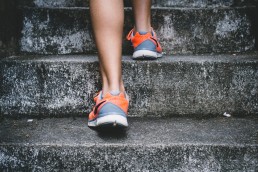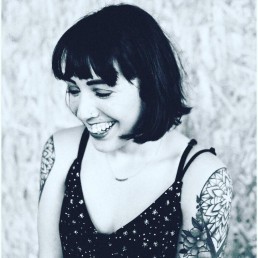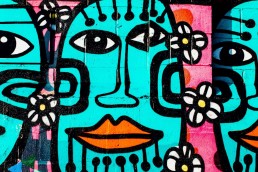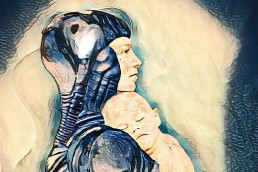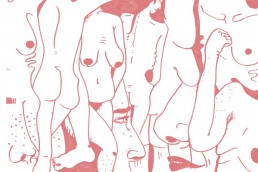By Alexandra Jones
Photography by Bruno Nascimento, via Unsplash (where applicable)
Morahan – Martin states ‘Promise and peril: the Internet has brought both to women’ and this is certainly the case when it comes to our relationships with our bodies.
Traditional media has long held up a specific female body type as the beauty ideal, prioritising slenderness and eurocentricity which have engrained themselves within the national psyche. This repeated exposure to such images leading to women internalizing “the thin ideal such that it becomes accepted.. as the reference point against which they judge themselves.” Tiggemann (2002 : 92). For myself certainly, and many of my peers, the exposure to such body types did little for our self -esteem when growing up. My preoccupation with reading magazines as a teenager undoubtedly shaped my own relationship with my body, and whilst my issues with food during my late teens can not solely be attributed to media influence, at a time of turmoil, it certainly didn’t help being surrounded by such images that were, for myself anyway, unattainable.
Some would argue that the nascent of social media and the subsequent circulation of user generated content challenges the dominance of traditional media, eroding its ability to transmit certain ideas and with this there has been a diversification in terms of the types of images we’re exposed to – the body positivity movement (users like bodyposipanda) and the recent hashtag #sideprofileselfie certainly prove that, but has this shift actually changed the relationship we have with our bodies?
Recently, a new beauty ideal has appeared to emerge – the slim, yet muscular body type often accompanied by the slogan #strongnotskinny.
As of September 2017, the hashtag ‘#strongnotskinny’ had been used in the captions of over 5.5 million posts on the image sharing platform Instagram. A quick search on the 29th March 2018 demonstrated that the number currently sits at 6.3 million Instagram posts.
Here’s where I admit that, upon trying to embark on a fitness journey, I was drawn to this phrase; the notion of being a powerful woman appealed to me, and I wanted to have a visual, albeit superficial, goal to work towards.
Having filled up my social media feed with toned, muscular women, within the first few weeks of my journey to ‘strong’, I was already starting to feel more negatively about my own body image. I began to reflect on this phrase, so often met with praise and positivity online and realised my own discomfort with it. Following a social media cull, and a revaluation of my aims, I’m finally starting to feel better about my body. Here are some thoughts I have about it:
- The term is rife with ableism – strong here is measured by the ability to lift weights or perform particular feats, which some are simply not able to do – yet this does not make them any less strong. Given the manner in which gym environments often feed into the social model of disability with their inaccessibility a ‘strong’ body type is not attainable to some. There are no visual markers of strength, be it mental or physical.
- Binaries are problematic AF – by pitching two things against one another, there’s the inference that one is superior. Society has always tried to reduce women to stereotypes or define them in order to constrain, often using binaries. The sense or one versus the other also shames ‘skinny’ women who may be strong.
- Lack of diversity within the fitness industry – when scrolling the hashtag I began to realise that, according to Instagram, fitness had a specific look – white, often blonde, glute dominant, Caucasian women dominate the fitness side of social media.
The rise in this trend and the manner in which I nearly fell for it proves how easy it is to succumb to ‘faux body positive’ movements which appropriate messages of female empowerment yet do not really empower women. I encourage others to think more critically about the content they engage with, and when they see images on their feed consider how they make them feel. I, for one, know that had I not begun to reflect on the types of accounts I was following, it would have been easy to fall for yet another beauty myth, and begin to criticise my body, disrupting the peace I have finally made with it following a long, tumultuous journey.
Alexandra Jones
Alexandra Jones is an MSc Gender, Intersectionality and Social Change student, something she attempts (to varying degrees of success) to fit around working full time in Energy & Fuel Poverty Policy. An adopted Brummie, Alex is fiercely passionate about politics, mental health feminism, music and food. Future goals include becoming the UK’s most heavily tattooed politician, and running a half marathon.

